What to Expect
Making you the best neurosurgeon you can possibly be demands diversity and depth in clinical exposure. The Accreditation Council for Graduate Medical Education (ACGME) permits multiple training sites with the provision that your education is well-balanced and well-supervised.
The University of Minnesota neurosurgery program uses four training sites to broaden your exposure to a wide variety of patients with a full span of neurosurgical disorders. The sites include:
M Health Fairview University of Minnesota Medical Center
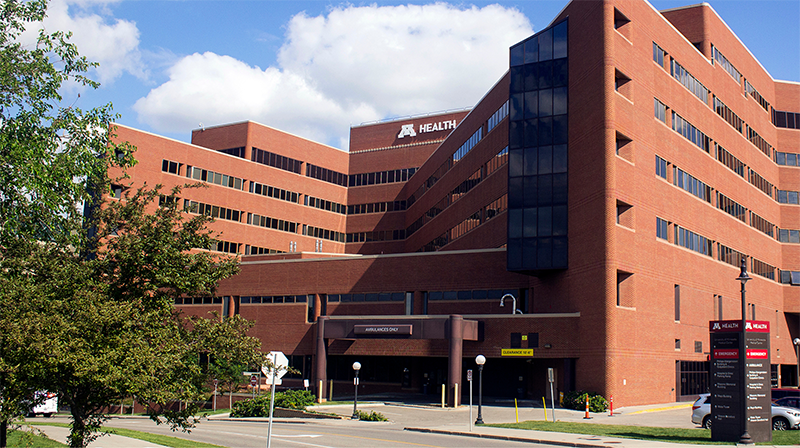
M Health Fairview University of Minnesota Medical Center, a major hospital affiliate of the neurosurgical residency training program, provides a significant portion of the program with clinical education experience for medical students, residents, and fellows. There are currently four full-time and two affiliated clinical faculty. In addition, we have one full-time PhD faculty member within the Department of Neurosurgery. Affiliation with Otolaryngology and Ophthalmology, joint ventures with basic scientists in oncology in the Masonic Cancer Center and the Oralfacialmaxillary Departments, broaden your scope of neurosurgical exposure.
Hennepin Healthcare
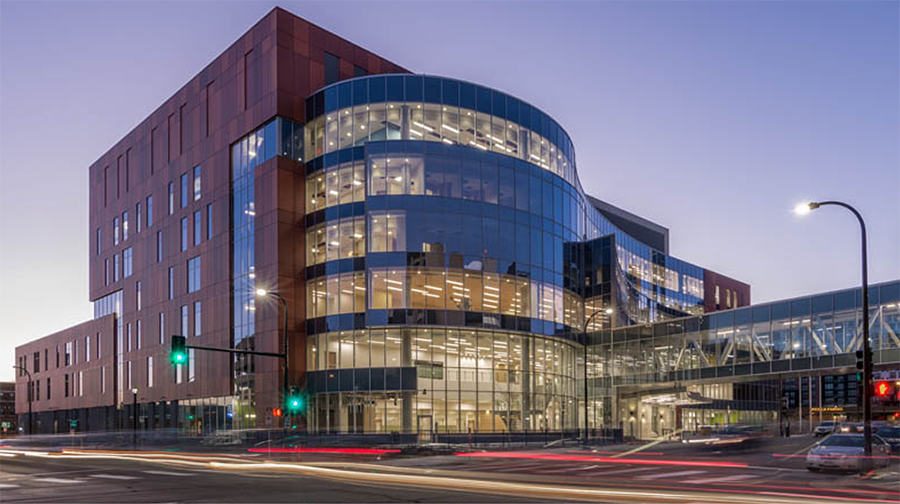
Hennepin Healthcare is an integrated system of clinics, from primary and specialty care to home care and hospice, rehabilitation, and trauma. It contains a Level 1 trauma center with strong affiliations with the University of Minnesota. Hennepin Healthcare has an emergency medicine residency and gives you exposure to a full range of cranial and spinal trauma cases. Because it serves patients with diverse backgrounds, you are exposed to a wide variety of neurosurgical disorders.
Minneapolis VA Medical Center
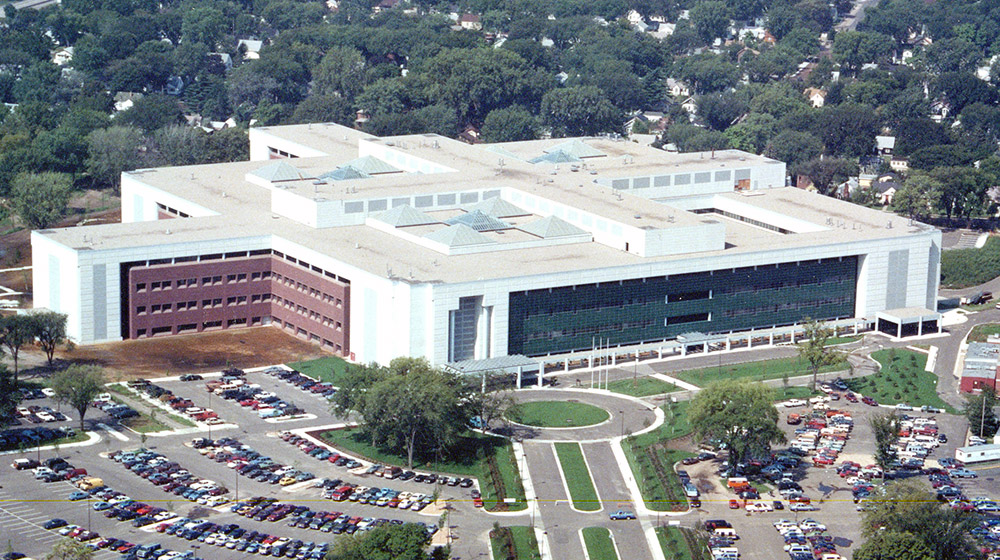
The Veteran’s Affairs system has always been an integral part of resident education. It serves a population particularly susceptible to specific diseases whose pathology and treatment are crucial to your development. Inpatient service is provided by the University of Minnesota Department of Neurosurgery staff. Outpatient service is overseen by Dr. Walter Bailey. Two physician's assistants and a dedicated neurosurgery nurse complete the neurosurgery team.
M Health Fairview U of M Masonic Children’s Hospital
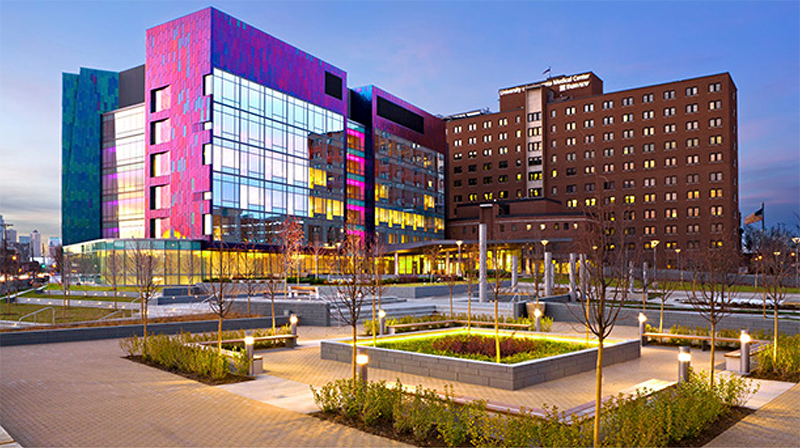
The M Health Fairview University of Minnesota Masonic Children's Hospital, located on the West Bank of the Mississippi River, provides resident exposure to a wide variety of pediatric neurosurgical problems. During this six-month rotation, working closely with three neurosurgeons and two nurse practitioners, the resident gains experience with all aspects of pediatric neurosurgery including brain tumors, hydrocephalus, congenital malformations, and trauma. Pediatric neurosurgeons at Children's participate in several multi-specialty teams including neuro-oncology and craniofacial.
Collaborative and Interdisciplinary
We collaborate in a highly interdisciplinary fashion with our colleagues from other specialties to treat movement disorders, epilepsy, pituitary diseases, neurofibromatosis, skull base tumors and anomalies, craniofacial disorders and cancer affecting the nervous system.
We use the most advanced technologies such as intraoperative MRI, Gamma Knife radiosurgery, image guided intracranial endoscopy and emerging technologies currently under evaluation including blood brain barrier disruption and immunotherapy for malignant brain tumors.
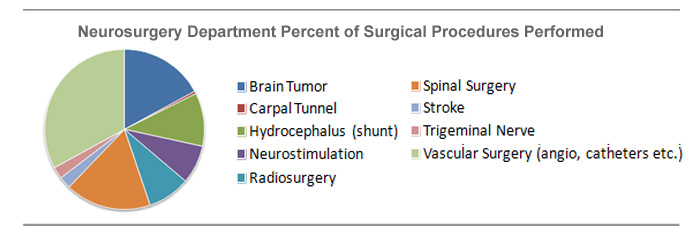
Faculty Mentors
Each resident is paired with a faculty mentor or advisor. He or she is responsible for helping you make the most of your time as a resident. Your mentor/advisor can help you navigate many things, from your clinical work to your research.
"Through my advisor/mentor, I have been able to get involved in research. It’s not that I don’t talk to the other attendings about it; it’s just nice to have scheduled time to discuss this with someone. The faculty overall are genuinely interested in helping us. They want us to succeed, to do great things." - Dr. Molly Hubbard, Former Resident
Rotation Schedule
Our goal is to give you a high quality educational experience. We do our best to maintain this schedule; however, adjustments are sometimes required and should be expected. Your PGY-1 year is designed using Accreditation Council for Graduate Medical Education surgery training program guidelines under the direction of the Department of Neurosurgery.
Program requirements for neurosurgery require that your educational experience be 60 months long; the table shows how the 60 months are typically spent.
What's included in the Clinical Program?
Neuro-oncology:
- Primary and metastatic tumors
- Blood brain barrier disruption
- Immunotherapy
- Spinal tumors
- Skull base tumors - conventional
- Skull base tumors - endoscopic
- Pituitary tumors
Image-guided neurosurgery
- Integrated image guidance and endoscopy
- Intraoperative MRI
Spinal neurosurgery
Neurosurgical trauma and critical care
Stereotactic & functional neurosurgery:
- Deep brain stimulation
- Epilepsy surgery
- Gamma knife radiosurgery
Cerebrovascular surgery:
- Conventional
- Endovascular
Pediatric Neurosurgery:
- Craniofacial disorders
- Brain tumors
What is the case load like?
Our neurosurgeons complete more than 2,500 procedures per year and cover the entire spectrum of neurosurgical practice, including common conditions such as:
- Ruptured discs
- Spinal stenosis
- Hydrocephalus
- Subdural hematomas
- Brain, spine and spinal cord injury
- Carpal tunnel syndrome.
We also perform the most complex subspecialty procedures such as:
- Deep brain stimulation
- Skull base surgery
- Advanced brain tumor treatment
- Pediatric neurosurgery
- Open and endovascular neurosurgery for aneurysms and arteriovenous malformations
- Complex spinal neurosurgery including spinal fusions
- Complex peripheral nerve surgery.